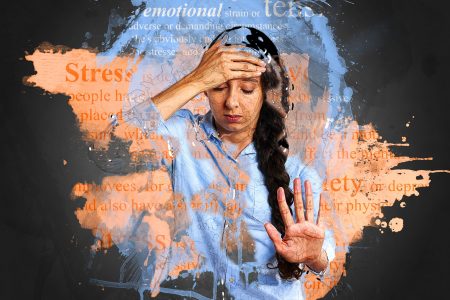Burnout
9 Simple Ways to Prevent It
From Ever Happening Again
Burnout is reaching epic proportions in modern society. A 2013 survey of human resource directors in the UK found that almost 30% reported that burnout was widespread in their organization. While you may think that burnout is “just” the result of long hours at work, it is a condition that can impact your brain health and physical health. In addition to this, burnout isn’t just reserved for those in the work force.
The term burnout came about in the early 1970’s and now is considered a diagnosis that can closely resemble depression. The Maslach Burnout Inventory evaluates burnout based on three key stress responses: an overwhelming sense of exhaustion, feelings of cynicism and detachment, and a sense of professional ineffectiveness and lack of accomplishment.
I don’t work long Hours; How Can I have Burnout?
Burnout isn’t reserved for the work force only. The typical overworked person is trying to juggle family and an unsatisfying job, but the reality is it can happen to anyone- a high school or college student, medical student, athlete (not just elite athletes’), stay at home mom, someone trying to raise her own family and taking care of aging parents/or caring for someone with a disability.
When I was in grad school, I was going to school, working two jobs and doing my internship and feeling something “had to give”. I just couldn’t go on like this any longer. I started to get sick frequently, daily headaches, poor diet and was having severe stomach pains.
It happened again and worse to the point that I felt like I was breaking down when my first born had “colic” (which many years later we found out the cause). I was a new mom, in a new state with a husband who traveled, worked long hours and was in grad school. I had no friend or family support in that state and every day felt the same with non-stop crying .sleepless nights and I felt helpless. That was also burnout.
As you can see, burnout comes in many shapes and forms and not just work related. I think therefore it gets down played and the signs and symptoms get ignored until it is too late.
Because I didn’t have the tools that I have now it ended up being a struggle and a long road.
I hope these simple tools help you too.
Not Sure if You have Burnout? Here are Some Symptoms
Burnout may be difficult to identify because it may look like depression, stress or anxiety. It may be helpful to work with a professional who can help you to identify what is going on if you are unable to address it on your own.
Stress can turn into burnout. We all have stress in our lives, but hopefully short term. Unfortunately, for many of us, short term stress turns into chronic stress and this can lead to burnout.
Some signs and symptoms of burnout:
- Tired, fatigued, exhausted
- Unmotivated
- Disengaged
- Dreading the work day, don’t want to get out of bed
- Frustrated and irritable, short tempered, quick to blame others
- Negative attitude
- Poor sleep
- Calling in sick often to work, making excuses, skipping class
- Missing deadlines, failing grades at school
- Having new physical symptoms such as stomach pain, headaches, backache
- Not motivated, lost lack of purpose and passion in life
- Constantly thinking of quitting your job or feeling “something has got to give”, “can’t take this anymore”
- “going through the motions” at work, at home, at school, with family and friends, etc.
- Increased risk of heart disease
- Changes in mood, learning, memory
- Changes in appetite, weight (weight gain, craving junk food and sugar)
Burnout Causes
It is important to identify why you are feeling burnt out so that you can fix some of the underlying causes. Here are some general reasons for burnout.
- Not sure what your role is at work
- Taking on too much, not asking others to help share the burden, thinking you must “do it all”
- Overworked (this can be job, school or family related)
- Having little support from family, friends, boss, co-workers
- Lacking any recognition, feeling your work has no value, no appreciation
- Doing monotonous work with no break and no challenges or stimulation
- Low control in your job position, lack of autonomy
The Detrimental Impact When You Ignore Burnout and Stress
The most common causes of death began to shift in the mid-20th century, away from infectious diseases to lifestyle disease such as CVD, death caused by poor nutrition and from chronic on-going stress. Your body always is striving for homeostasis. It does not want to be in a state of on-going stress and depletion. The impact starts in the brain but will gradually spread to other bodily systems. Here is what can happen if you don’t address burnout (and on-going stress). You may not even associate your physical health condition with your feelings of burnout.
- elevated “bad” cholesterol
- irregular heartbeat
- heart attacks
- anger, outbursts
- weakened immune system
- diabetes
- alcohol abuse, other drug abuse/dependence
- poor memory, difficulty learning new tasks
- Chronic fatigue syndrome, exhaustion
- Worsening PMS symptoms
- depression, anxiety
9 Simple Tips for Avoiding Burnout
You may not be able to change your situation but there are things that can help. For instance, if you are burnt out because you are taking care of a parent with dementia, you can use respite services to give you a break.
You may think you can “push through” your burnout or tell yourself that “this will pass”. It is better to address burnout before it happens but if it does happen don’t ignore it. Studies show that burnout causes more pronounced thinning of the frontal cortex part of the brain. Other parts of the brain are impacted as well, and as neural structures show wear and tear from burnout, it can lead to memory, attention and emotional issues. So best to address it, rather than ignore it.
Just Say No! Really!
Are you the “go-to” person who always says, “yes”, you help anyone and everyone and never have time for yourself? You focus on everyone else and never on yourself? Sound familiar?
Women, unfortunately, need to be reminded to take care of themselves. We think of self-care as an indulgence, but the reality is, you need to plan time into each day just for yourself. Those who do take care of themselves have the energy to work with meaning and purpose towards a goal. If you continue to do everything for others, instead of allowing them to do for themselves it can lead to bitterness, irritability, exhaustion and other signs of burnout. Saying no and adding in self-care does take practice and discipline but once you get the hang of it, you will reap its rewards. It is okay to think of yourself!
Which leads me into the next step…
Exercise
With all that time you have freed up in your schedule by saying “no” and not doing everybody else’s work you will have time to exercise!
I know, easier said than done when you are on the go from the crack of dawn to night fall and by then you are just too tired to exercise or there are kids’ extracurricular activities and so forth at the end of the day. Exercise should be scheduled into your day just like everything else. Studies show that even 15 minutes of exercise per day can be beneficial, so you don’t need to spend an hour or more daily just on exercise.
Exercise has well-established anti-stress effects, producing mood elevating neurotransmitters. However, if you are feeling depleted, high intensity exercise such as cross fit or running may not be the best choice at this time. This type of exercise may lead you farther down the road to burnout. During times of burnout, instead incorporate restorative exercise such as yoga, martial arts and walking.
Sleep
The odds are that if you are burnt out, you also are not getting a good night of sleep. It is possible that you are lacking in sleep because you are cutting back on sleep so that you can get everything done or just can’t sleep because your mind is racing at bed time or you suddenly have a surge of energy. Either way, the average person needs 7-9 hours of sleep nightly.
Sleep can be a challenging piece of burn out to fix. For a racing mind, herbal tea blends that contain valerian, hops, kava and chamomile can be helpful. If your vitamin D levels are low this can impact sleep. If it is cortisol related, taking an Adaptogenic herb (see below under adaptogens) can help to balance cortisol and restore sleep. Tapping, also called emotional freedom technique, has also helped people with sleep issues and burnout. Get the gadgets away from the bed as this will also disrupt your sleep cycle. If you sleep with your phone by your head or under your pillow, move it! At the very least, turn it to airplane mode at bed time.
Be Grateful
Gratitude Intervention programs are popping up at work places and for good reason. Gratitude can help us cope with stressful experiences and remind us of what is positive in our lives during the chaos. When added to the overall work environment, gratitude has been shown to improve life satisfaction and decrease emotional exhaustion.
A 2009 study of 400 adults found that grateful people slept better, were able to fall to sleep faster and had less daytime tiredness. A 2013 study of 1000 adults found that gratitude correlated with improved psychological health.
Incorporating gratitude into your day can be as simple as keeping a gratitude journal and writing one thing you are grateful for daily.
Take Breaks and Schedule Free Time
You may pride yourself on not taking breaks and working straight through lunch or being the first one at work and the last one to leave. Studies show that those who do take a lunch break are more productive at work. If you are a stay at home mom, take a break when kids are at school or napping. You may think that you have to get everything done while they are napping or at school, but you need to incorporate some “me” time, even if it is just 15 to 30 minutes. It could be anything from exercise, meditation, or needlepoint to reading a book or anything that you find enjoyment in.
Support
Find one person that you can talk to, whether it is in HR at work, a friend, pastor or an online support group. But do reach out and get support! Sometimes, just sharing helps. Don’t forget social connections. While it is easy to look for on line support, when burnt out we tend to isolate ourselves and social connections are just as important.
Feed Your Soul
What is it that you are passionate about? What feeds and nourishes your soul and makes you feel alive? Maybe right now you cannot drop everything in life and follow your passion, but you can still dip your toes in the water. It can be anything from joining a meet up group of your passion or taking an online course in your area of interest or volunteering with a local group in need that you have always wanted to help. You can still nourish your soul without radically having to change your life.
Nourish Your Body
Yes, this means healthy, whole food eating. When feeling burnt out, we often reach for sugar, chocolate, salt and unhealthy starches. The sugar and carb rush may make you feel good in the very short term, in the long term it does nothing to support your body when experiencing burnout. To support your energy levels, your brain and mental health, nourish it with nutrient dense whole foods!
Think leafy greens, veggies, fruit, beans and legumes, herbal teas, healthy proteins and fats not milk chocolate, Doritos, sub sandwiches and energy drinks
Support Your Body with Adaptogenic Herbs such as Rhodiola
When under short term stress, our body releases cortisol. This reaction is normal and once the stressor passes, cortisol levels return to normal. However, in the case of burnout, cortisol levels don’t return to baseline and this can lead to a cascade of health problems. In one study, those who were experiencing burnout had lower morning cortisol levels which is a sign that the body is responding to long term stress. (you want your cortisol levels to be at its peak in the morning.).
There is where rhodiola comes into play and can be very beneficial during burnout. Rhodiola, an Adaptogenic herb, can help support your body when under stress, stabilize your emotions, improve fatigue and exhaustion symptoms, reduce depressive symptoms, help to balance cortisol levels and enhance your performance, and relieve mental fatigue. If you are experiencing burnout, this should be part of your recovery protocol.
You want a product that uses the root portion of the plant. Rhodiola is typically standardized to 3-5% rosavin and 1-2% salidroside. These are the two active compounds found in Rhodiola.
The capsules are typically 340- 450 mg per capsule. You can take one to two of these capsules two times per day. It is best to NOT take the second dose after mid-day. Always start with the lower dose to see how you feel and work your way up from there.
You should not take Rhodiola if you are on an SSRI or MAOI antidepressant medication.
Bottom Line:
Don’t ignore stress that turns into burnout! It will not just go away. Find something on the above list that you can incorporate into your daily life to help you deal with burnout and avoid it next time. If you ignore it, the effects can be long term and damaging. Uncontrolled stress can degrade numerous bodily systems including the cardiovascular system, the digestive system, and the immune system, to name a few.
Sources
- https://www.psychologicalscience.org/observer/burnout-and-the-brain
- https://journals.plos.org/plosone/article?id=10.1371/journal.pone.018571
- https://www.sciencedirect.com/science/article/pii/S2213058617300165
- https://www.tapintegrative.org/blog/December-2017-(1)/Rhodiola-Rosea-Burnout-Syndrome-Exploratory-Trial
- http://cms.herbalgram.org/herbalgram/issue82/article3409.html?
- http://www.hrmorning.com/study-90-of-employees-who-take-regular-lunch-breaks-are-more-productive/
- https://experiencelife.com/article/back-from-burn-out/
- https://www.tandfonline.com/doi/abs/10.1080/01443410.2011.608525
- https://www.ncbi.nlm.nih.gov/pubmed/19073292
- https://www.ncbi.nlm.nih.gov/pubmed/23139438
- Winston, D. & Maimes, S. (2007) Adaptogens. Herbs for Strength, Stamina, and Stress Relief. Vermont: Healing Arts Press









Leave A Comment
You must be logged in to post a comment.